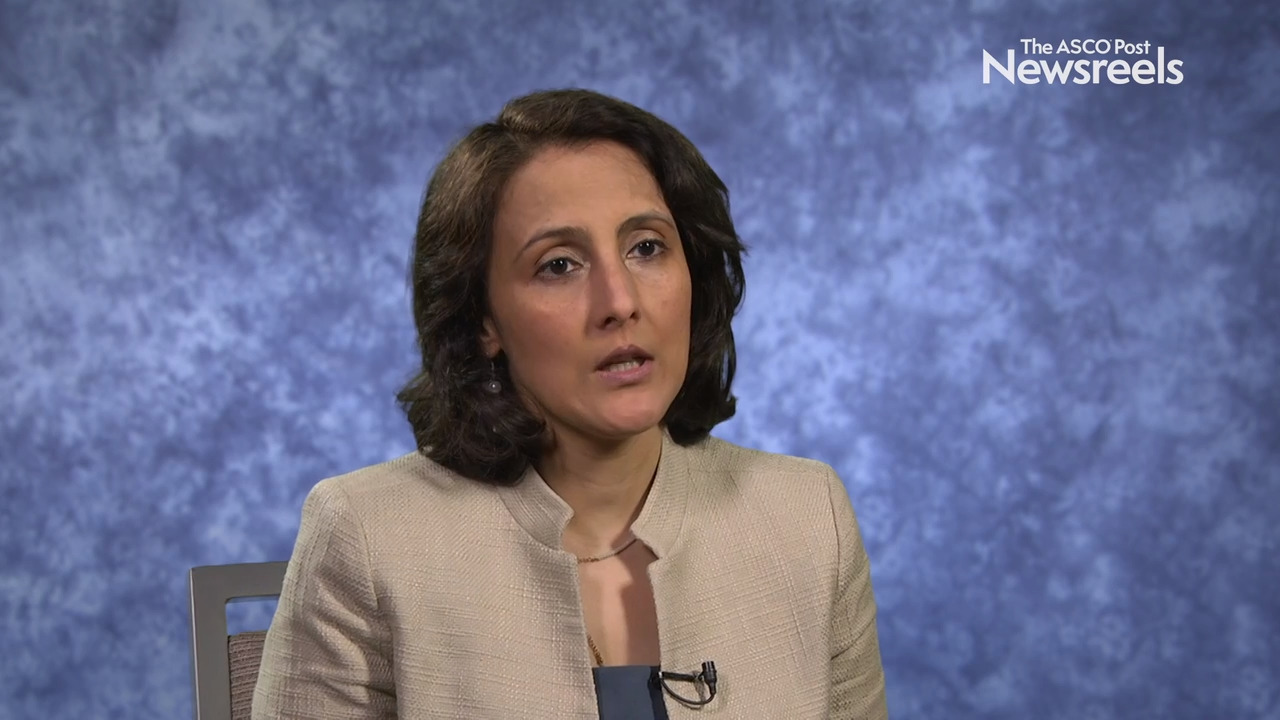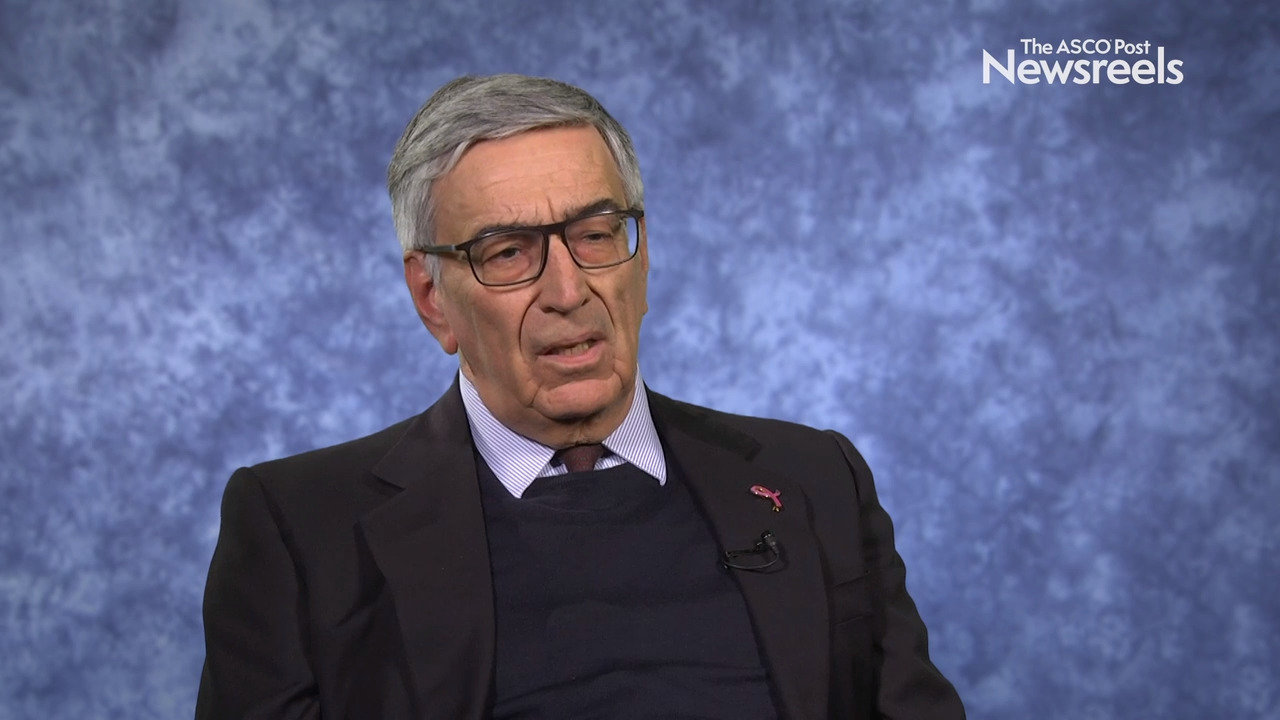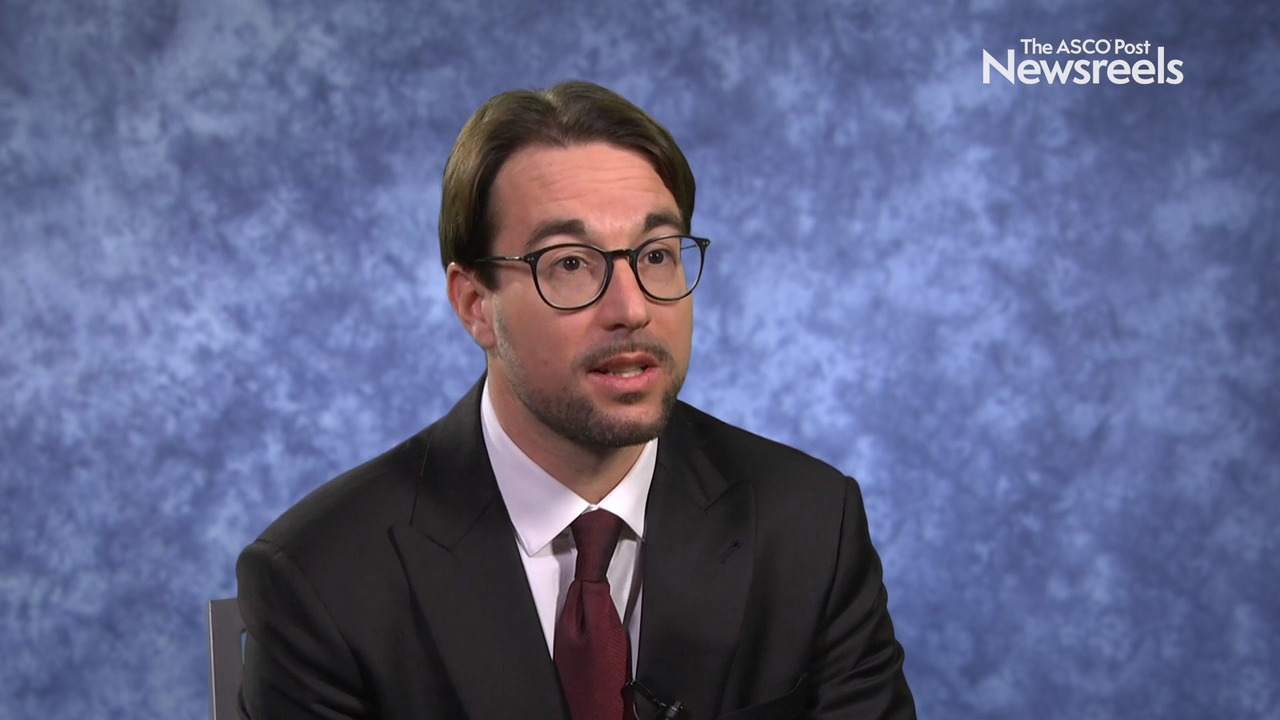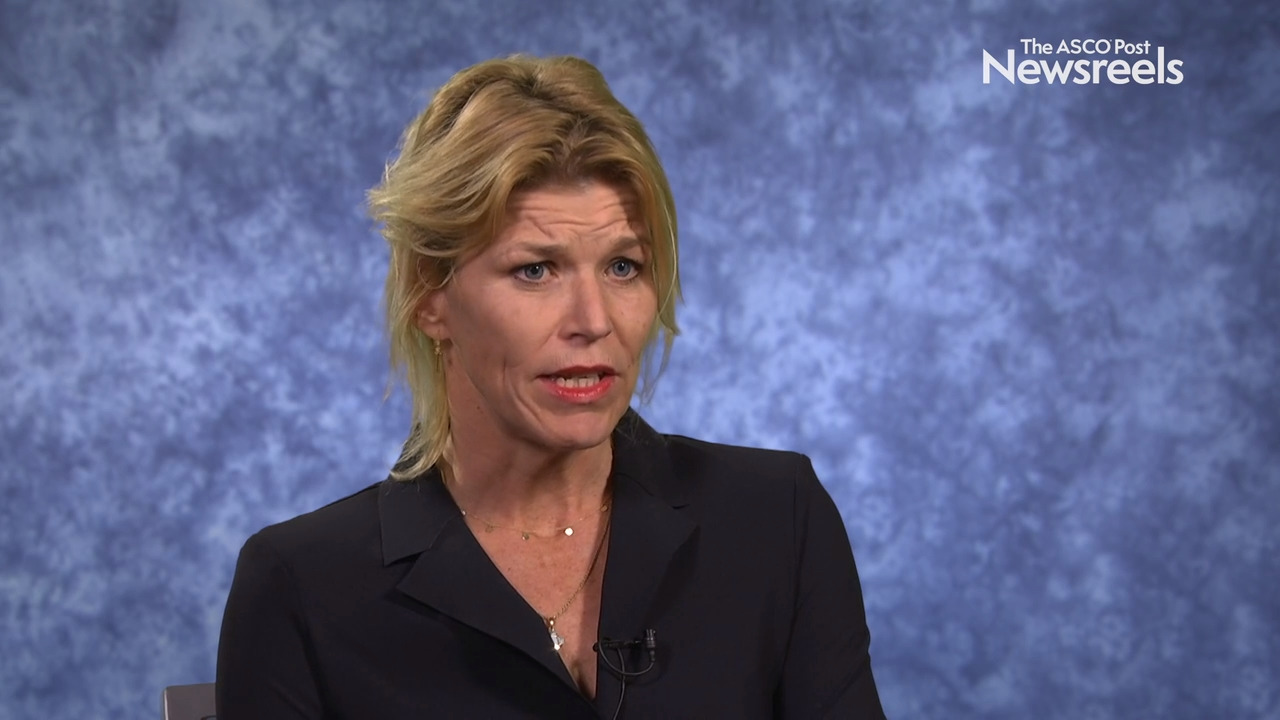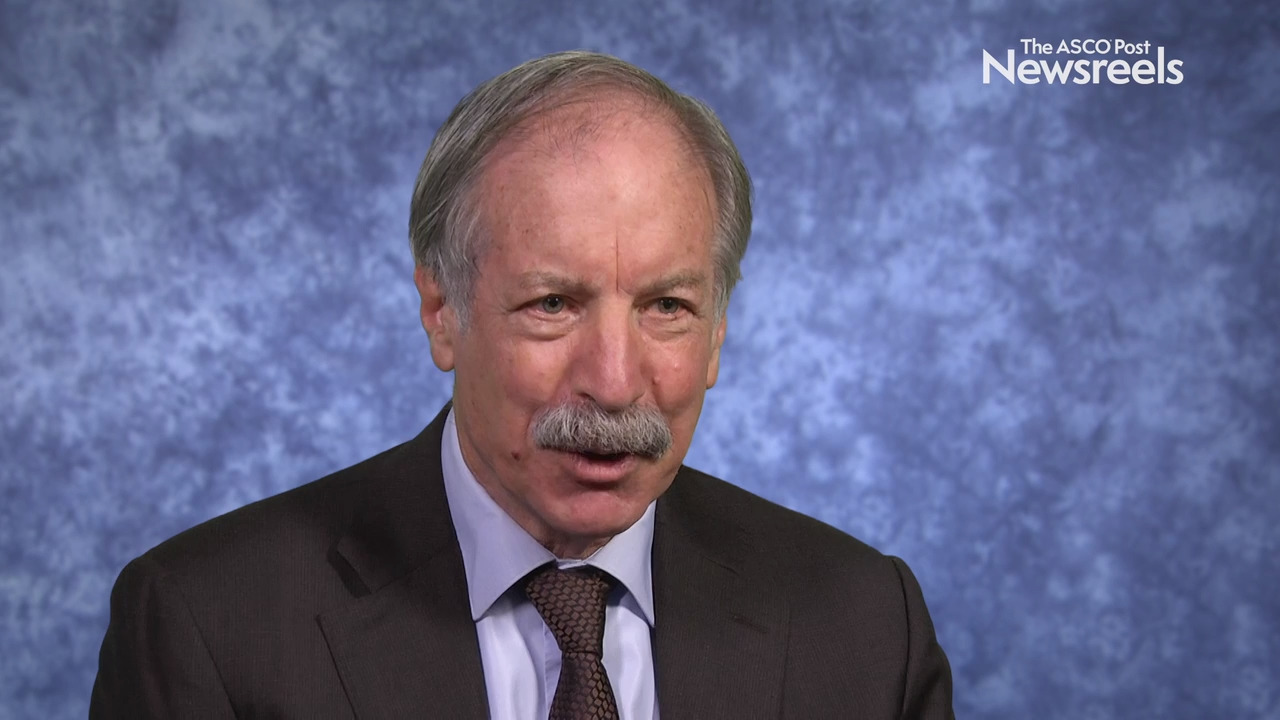Hongchao Pan, PhD, on an Update on 5 Years of Endocrine Therapy for Early Breast Cancer
2019 San Antonio Breast Cancer Symposium
Hongchao Pan, PhD, of the University of Oxford, discusses an analysis of 86,000 women in the Early Breast Cancer Trialists’ Collaborative Group database, which showed that the risk of distant recurrence 20 years after a diagnosis of node-negative, estrogen receptor–negative early-stage breast cancer in women who discontinued endocrine therapy at 5 years is likely to be about a third lower now than in his group’s previous report (Abstract GS2-04).
Priyanka Sharma, MD, of the University of Kansas Medical Center, reviews new phase III data on adding oral fluoropyrimidine to adjuvant endocrine therapy, the current standard of care, in the setting of hormone receptor–positive, HER2-negative primary breast cancer (Abstract GS1-09).
Luca Gianni, MD, of the Fondazione Michelangelo, discusses findings from the NeoTRIP trial on pathologic complete response to neoadjuvant treatment with or without atezolizumab in triple-negative, early high-risk, and locally advanced breast cancer (Abstract GS3-04).
Icro Meattini, MD, of the University of Florence, discusses study findings that showed the less-invasive partial-breast irradiation using intensity-modulated radiotherapy after surgery may be an acceptable choice for patients with early breast cancer, as it is cost-effective, safe, and efficacious when compared with whole-breast irradiation (Abstract GS4-06).
Marie-Jeanne T.F.D. Vrancken Peeters, MD, PhD, of the Netherlands Cancer Institute, discusses an interim study analysis showing that ultrasound-guided core biopsies of the breast in patients with excellent response on MRI after neoadjuvant systemic therapy may not be accurate enough to safely select patients with pathologic complete response for omission of surgery (Abstract GS5-06).
Jack Cuzick, PhD, of Queen Mary University of London, discusses the substantially greater benefits of anastrozole as compared with tamoxifen in terms of preventing breast cancer, with no increase in fractures or other reported serious side effects (Abstract GS4-04).
